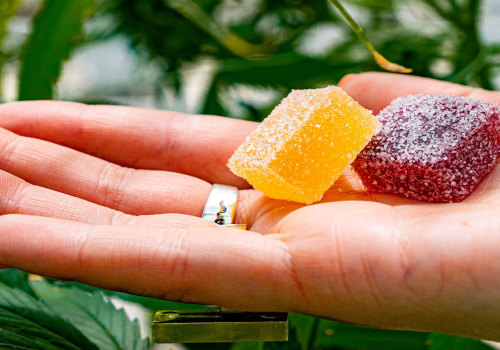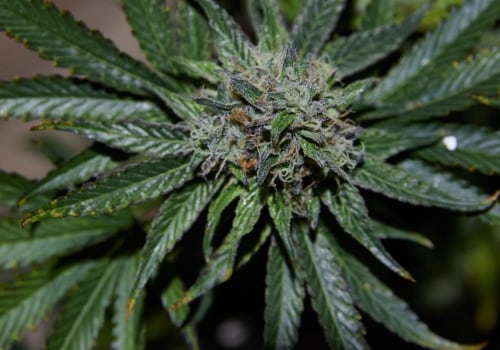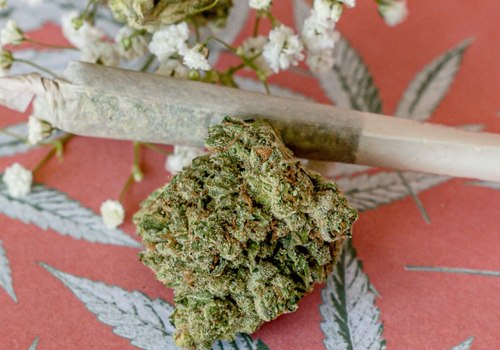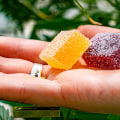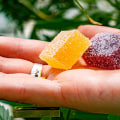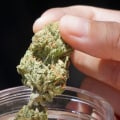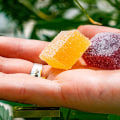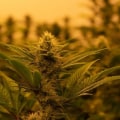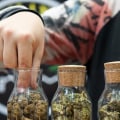Delta-8 tetrahydrocannabinol, also known as delta-8 THC, is a psychoactive compound that is present in the cannabis plant. It is an isomer — in other words, a minor chemical variant — of delta-9 THC, which is commonly referred to simply as THC. Delta-8, as it is often called, is sold online and in physical stores in the form of products such as gummies, vaporizers, tinctures and groceries. As isomers, delta-8 and delta-9 contain the same chemical formula, but the molecules are arranged differently.
Delta-8 interacts with the same cannabinoid receptors in our nervous system (known as CB1 and CB2) as delta-9, but their interactions are weaker. The effects are similar, but it is generally considered to be less potent. THC delta-8 remains a Schedule 1 controlled substance because it is “of synthetic origin” and therefore illegal under federal law. If you keep up to date with the latest developments in the world of cannabis, you've probably heard of THC delta-8.With products available for purchase online, in physical stores and even at gas stations, delta-8 is marketed as “light marijuana”, a form of “getting high” without paranoia and even “legal marijuana”.
But is that really true? And what exactly is it?The experts then discuss the most common questions about the substance. Commercial delta-8 is mainly obtained from hemp, which is a plant of the cannabis family with a low THC content. Hemp also contains cannabidiol, or CBD, which is another isomer of THC, and it's fairly easy for laboratories to convert CBD into delta-8 THC. Therefore, delta-8 products sold on the Internet and in stores are likely to be synthesized from CBD rather than extracted from hemp plants, since CBD is available in higher volumes. The reason why more people have started to find delta-8 in recent years is due to a federal law that put their legal situation in a slightly gray area.
Basically, entrepreneurial entrepreneurs have interpreted the law to mean that products containing higher amounts of delta-8 THC are legal as long as they come from CBD in hemp, and not from marijuana. And with the increase in the production of oils, edible products and other CBD products after the adoption of the agricultural law, supply exceeded demand, prices fell and many businessmen decided to focus on delta-8.Gerdeman noted that the Drug Enforcement Administration does not appear to have taken a firm stance, but that local and state law enforcement agencies have raided delta-8 facilities in several states. To date, 20 states have banned or restricted delta-8 THC, and their legal status is being reviewed in four more states. Age restrictions may vary by state or individual seller (although most require buyers to be over 21). Federal courts have finally delved into the murky waters surrounding the legality of delta-8.The Ninth Circuit Court of Appeals ruled in a trademark case that vaporizers containing delta-8 THC are “legal” under the farm bill. The ruling noted that “it is up to Congress to correct its error if this was an unintended consequence of the legislation.”Although countless studies have been done on the efficacy and effects of delta-9 THC, the same cannot be said for delta-8 THC.
So while it's tempting to say that delta-8 is “natural” and therefore harmless, the scientific community has not thoroughly investigated the impact of this cannabinoid when taken in larger amounts than those found naturally in cannabis plants. Another concern relates to production and regulation, or rather, to the lack of them. Although he believes that delta-8 THC alone is a safe therapeutic product, Gerdeman expressed concern about contamination in unregulated commercial laboratories that synthesize delta-8 THC. He also noted that it is easy and common for laboratories to underestimate the amount of delta-9 THC that is also created in the process, so delta-8 products may end up being much more potent than advertised. The FDA and some marijuana industry experts share Kennedy's concerns. At least a dozen states have banned the drug derived from hemp, including Colorado, Montana, New York and Oregon, which have legalized marijuana.
However, the manufacturers of delta-8 consider the concerns to be unfounded and say that they are being driven by marijuana companies trying to protect their market share. States are preemptively restricting or outright banning delta-8 THC as federal regulators begin to clarify its legality. States restricted or banned delta-8 THC, prompting an outcry from users, companies, manufacturers and sellers in the cannabis industry. States that ban delta-8 THC? Which ones have already banned it? What do the federal government and the DEA have to do with this? Currently, 21 U.
S. UU. States have restricted or banned delta-8 THC and four other states are currently reviewing their legal status. Here you can find the latest news on whether delta-8 THC is available and legal in your state.
We work day and night to provide you with the latest news on the state legality of delta-8 and its products.
Delta 8 Ban by State
Alaska: Alaska does not allow the use, possession, sale, distribution or production of Delta 8 and classifies it as a Schedule IIIA controlled substance under state law. List IIIA includes all tetrahydrocannabinols such as Delta 10 and THC O. The possession of Delta 8 ranges from a class C misdemeanor to a felony depending on amount and intention.Arkansas: Delta 8 in Arkansas is undeniably legal under state law; Arkansas classifies Delta 8 as a Schedule IV controlled substance placing it together with other tetrahydrocannabinols such as Delta 10 and HHC.
However according to an official source; The state health department has not explicitly prohibited or allowed use possession sale or production of Delta 8 products so it's up to discretion of local law enforcement to take necessary measures if necessary.
California: Delta 8 is restricted in California under state law; The use possession sale distribution & production of Delta 8 are prohibited.
